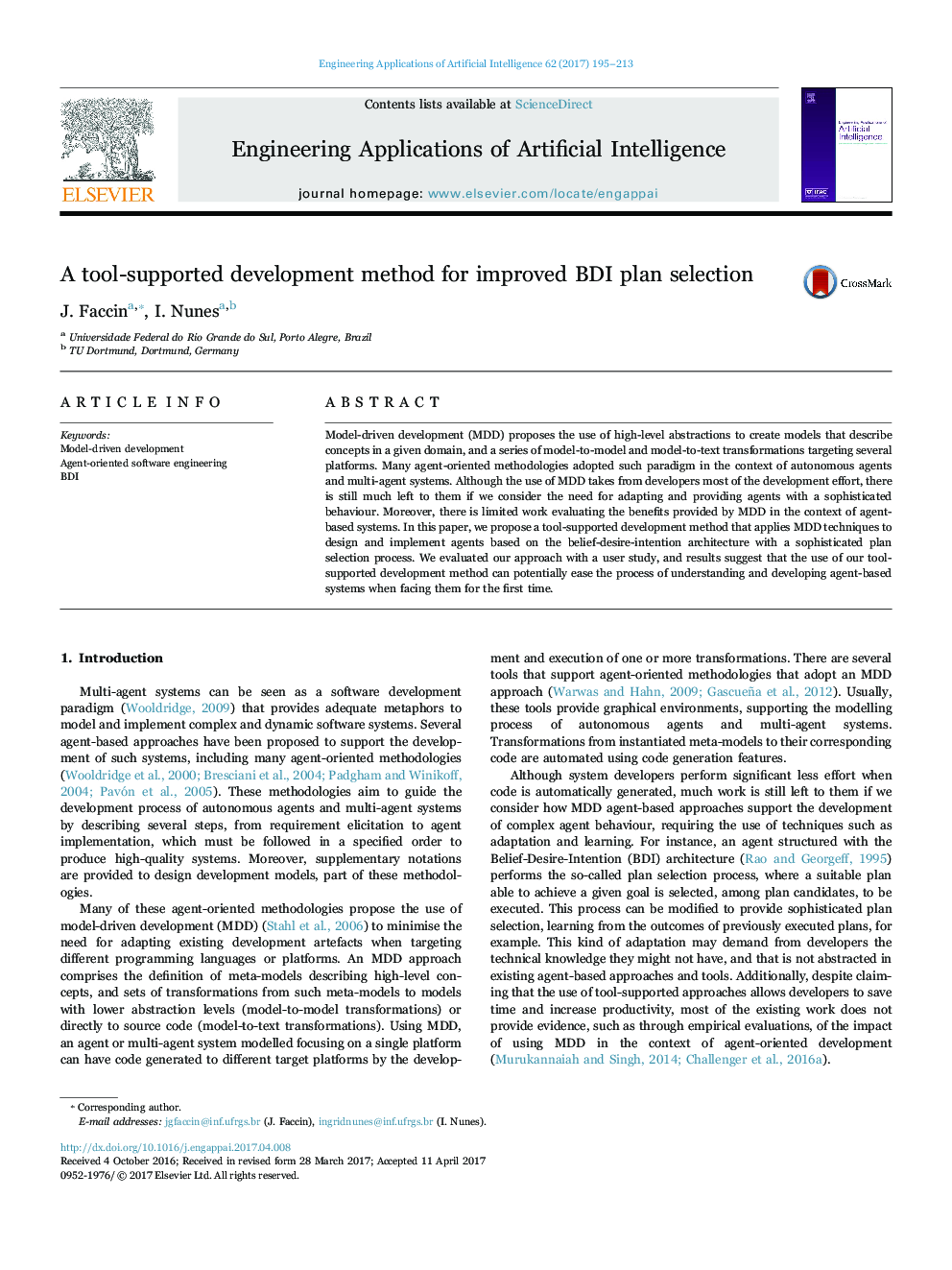| Article ID | Journal | Published Year | Pages | File Type |
|---|---|---|---|---|
| 4942743 | Engineering Applications of Artificial Intelligence | 2017 | 19 Pages |
Abstract
Model-driven development (MDD) proposes the use of high-level abstractions to create models that describe concepts in a given domain, and a series of model-to-model and model-to-text transformations targeting several platforms. Many agent-oriented methodologies adopted such paradigm in the context of autonomous agents and multi-agent systems. Although the use of MDD takes from developers most of the development effort, there is still much left to them if we consider the need for adapting and providing agents with a sophisticated behaviour. Moreover, there is limited work evaluating the benefits provided by MDD in the context of agent-based systems. In this paper, we propose a tool-supported development method that applies MDD techniques to design and implement agents based on the belief-desire-intention architecture with a sophisticated plan selection process. We evaluated our approach with a user study, and results suggest that the use of our tool-supported development method can potentially ease the process of understanding and developing agent-based systems when facing them for the first time.
Related Topics
Physical Sciences and Engineering
Computer Science
Artificial Intelligence
Authors
J. Faccin, I. Nunes,
